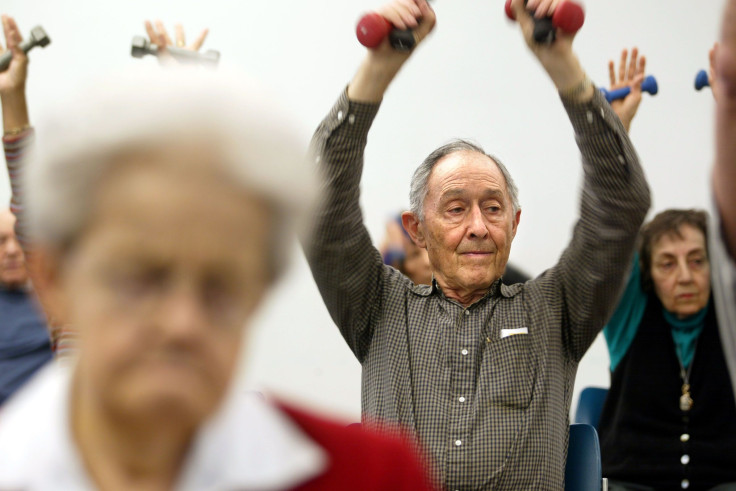3 Reasons Why People Gain Weight As They Age

At first, it may seem hardly noticeable. You notice your clothes are a little tighter or you even have to buy a size larger in some pieces. You tell yourself you’re just filling out a bit. As the years go on, however, your waistline continues to grow even though you haven’t changed your eating habits — or at least you don’t think so.
The struggle with weight gain happens to many people as they get older, and it’s cause is multifactorial, including a poor diet, sedentary lifestyle, genetics, social determinants, medications, or hormonal imbalances. While adding a few pounds may seem inevitable over time, it can be frustrating. For this reason, it helps to understand why it happens and what you can do about it.
Physical Inactivity and Muscle Loss
How many times have you watched children at play and said to yourself, “I wish I had that much energy again.” Because kids are always on the go, they seldom put on weight. Even teens are involved in sports and other activities, which help keep them lean. Once you begin college and move on to a career, you spend an increasing amount of time sitting. Because you’re less active, more calories get stored as fat rather than being converted into energy. This issue is compounded by the loss of muscle; you lose as much as 3 to 5 percent of muscle mass each decade after your turn 30 — a condition known as age-related sarcopenia .
You’re under more stress
Stress impacts the body’s ability to optimize how it processes nutrients and foods. It also prompts many people to eat poorly and even overeat. When you’re young, you have a limited amount of stress in your life. Then as you get older and take on more responsibilities, the stress increases. This stress can cause a range of health effects beyond weight gain, including learning and memory deficits, lower immune function, high blood pressure and cholesterol, and heart disease.
Hormonal Declines
The aging process is often associated with a significant decline in many different hormones, including growth hormone, estrogen, progesterone, testosterone, and the two thyroid hormones. This natural decline is referred to as “age-related hormone decline,” and studies have demonstrated they begin to drop steadily around 30 years old. By age 65, these levels are typically below the lower limits of normal for healthy young individuals.
Many of the body composition changes that occur with aging tend to be consistent with growth hormone deficiencies, and they include reduced muscle mass and strength, increased abdominal fat (“pot belly”), sleep disturbances, and mood disorders, such as depression. While growth hormone replacement therapy has been shown to restore hormonal balance, and possibly reverse these symptoms, in those who are deficient, the efficacy and safety of the therapy among “healthy” individuals seeking hormone optimization has sparked controversy.
To avoid what seems like inevitable weight gain as you age, you must be diligent. First and foremost, a healthy, calorie-appropriate, and nutritious diet is essential to keeping you at a healthy weight. Other important factors in maintaining a healthy weight include moderate physical activity, and getting enough rest. While getting older may make it harder to maintain a healthy weight, you don’t have to give up. With the right tools and persistence, you can fight the battle on the scale no matter your age.
Devin Haman is the co-owner of the Beverly Hills Rejuvenation Center, an anti-aging and medical spa specializing in state-of-the-art treatment methods that make you look and feel younger. He is recognized as one of the 100 most powerful people in the United States according to Item Magazine, and founder of the famous Sunset Tan tanning salons, frequented by pop culture princesses Britney Spears, Megan Fox, and Paris Hilton.



























